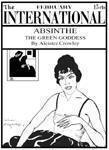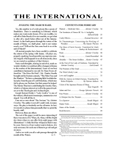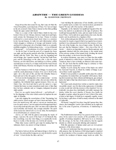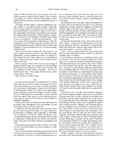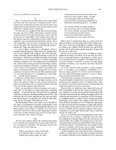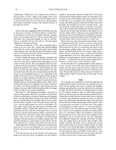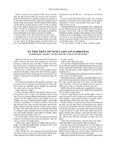100th
MP

|
THE
100th
MONKEY
PRESS |
|
|
|
Limited Editions by Aleister Crowley & Victor B. Neuburg |
|
Bibliographies |
|
Download Texts
»
Aleister
Crowley
WANTED !!NEW!!
|
|
ABSINTHE, THE GREEN GODDESS |
|
»» Download Text «« |
Image Thumbnails |
|||
|
Title: |
Absinthe, The Green Goddess |
|
||
|
Type of Media: |
Periodical. |
|||
|
Name: |
The International: A Review of Two Worlds. |
|||
|
Issue: |
Volume XII, Number 2. |
|||
|
Date: |
February 1918. |
|||
|
Publisher: |
International Monthly, Inc. |
|||
|
Published At: |
New York. |
|||
|
Pages: |
Pages 47-51. |
|||
|
Price: |
15 Cents. |
|||
|
Remarks: |
|
|||
|
Author’s Working Versions: |
|
|||
|
Other Known Editions: |
|
|||
|
Comments by Aleister Crowley: |
My best essay was "The Green Goddess" written in the old Absinthe House itself, and adorning its main theme the philosophical reflections suggested by absinthe with descriptions of the inn, its guests, and the city. From New Orleans I went to stay with my cousin Lawrence Bishop on his orange and grapefruit plantation in Florida. — The Confessions of Aleister Crowley. New York, NY. Hill and Wang, 1969. Page 778. ______________________________
The misery which I underwent at this time had done much to cloud my memory. I do not clearly remember, for example, my reasons for going to New Orleans almost immediately after returning from Lake Pasquaney. It was my last glimpse of beauty for a long while. The old French-Spanish quarter of the city is the only decent inhabited district that I discovered in America. From the architecture to the manners of the people, their clothes, their customs and their cookery, all was delightful. It was like being back in Europe again with the added charm of a certain wildness and romance; it was a civilization sui generis, with its own peculiar adornment in the way of history. It enabled me to realize the spirit of the Middle Ages as even the most remote and time-honoured towns of Europe rarely do. I took a room conveniently close to the Old Absinthe House, where one could get real absinthe prepared in fountains whose marble was worn by ninety years' continual dripping. The result was that I was seized by another of my spasms of literary creation, and this time, the definite sexual stimulus which I had imagined as partly responsible for such attacks was, if not absent, at least related to an atmosphere rather than to an individual. It lasted, if I remember rightly, some seventeen days. I completely lost track of the properties of times and place. I walked over to the Absinthe House in my shirt sleeves on one occasion without being in the slightest degree aware of the fact. My best work was an essay "The Green Goddess", descriptive of the Old Absinthe House itself in particular, and the atmosphere of the quarter in general. It may be regarded as the only rival to "The Heart of Holy Russia" for literary excellence and psychological insight. — The Confessions of Aleister Crowley. New York, NY. Hill and Wang, 1969. Page 817. ______________________________
I have myself made extensive and elaborate studies of the effects of indulgence in stimulants and narcotics. (See my The Psychology of Hashish, Cocaine, The Green Goddess, The Diary of a Drug Fiend etc.) I have a vast quantity of unpublished data. I am convinced that personal idiosyncrasy counts for more in this matter than all the other factors put together. The philosophical phlegmatic temperament of the Chinese finds opium sympathetic. But the effect of opium on a vivacious, nervous, mean, cowardly Frenchman, on an Englishman with his congenital guilty conscience or on an American with his passion for pushing everything to extremes is very different; the drug is almost certain to produce disaster. — The Confessions of Aleister Crowley. New York, NY. Hill and Wang, 1969. Page 490. ______________________________
In January 1918, I published a revised version of the "Message of the Master Therion" and also of the "Law of Liberty", a pamphlet in which I uttered a panegyric upon the Law as the key to freedom and delight. (To get rid of the subject I had better mention here the other magical essays which appeared in The International: "Cocaine", "The Ouija Board", "Concerning Death", "Pax Hominibus Bonae Voluntatis", "Geomancy", "Absinthe", "De Thaumaturgia", "Ecclesiae Gnosticae Canon Missae". Of these, Liber XV, its scope and purpose, I have already described at length.) The point which I wish to bring out is that despite the constraint imposed upon me by the requirements of public taste, I succeeded in proclaiming the Law to a wide audience of selected readers, explaining its main principles and general import in straightforward language, and also in putting over a large amount of what was on the surface quite ordinary literature, but implying the Law of Thelema as the basis of right thought and conduct. In this way I managed to insinuate my message perhaps more effectively than could possibly have been done by any amount of visible argument and persuasion. The Scrutinies of Simon Iff are perfectly good detective stories, yet they not only show a master of the Law as competent to solve the subtlest problems by considerations based upon the Law, but the way in which crime and unhappiness of all sorts may be traced to a breach of the Law. I show that failure to comply with it involves an internal conflict. (Note that the fundamental principle of psychoanalysis is that neurosis is caused by failure to harmonize the elements of character.) The essence of the Law is the establishment of right relations between any two things which come into contact: the essence of such relations being "love under will". The only way to keep out of trouble is to understand and therefore to love every impression of which one becomes conscious. — The Confessions of Aleister Crowley. New York, NY. Hill and Wang, 1969. Page 828. |
|||
|
Reviews: |
|
|||
